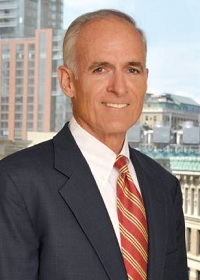 On Monday, June 6, 2016, a False Claims Act (FCA) lawsuit brought against a Kentucky ambulance company was unsealed. The whistleblower, Darrell McIntosh, is the owner of McIntosh Ambulance Services. During the course of conducting business in Breathitt County, Kentucky, McIntosh became aware of a competitor ambulance company, Arrow-Med, and their allegedly fraudulent Medicare billing practices.
On Monday, June 6, 2016, a False Claims Act (FCA) lawsuit brought against a Kentucky ambulance company was unsealed. The whistleblower, Darrell McIntosh, is the owner of McIntosh Ambulance Services. During the course of conducting business in Breathitt County, Kentucky, McIntosh became aware of a competitor ambulance company, Arrow-Med, and their allegedly fraudulent Medicare billing practices.
The False Claims Act, originally enacted in 1863 during the civil war to combat rampant fraud in government contracting, was amended by Congress in 1986 to enhance the federal government’s ability to recover losses from fraud against the United States. Violations of the False Claims Act are subject to civil penalties plus three times the amount of the loss that the government incurred as a result of the defendant’s actions.
McIntosh’s qui tam complaint alleges that Arrow-Med violated three provisions of the False Claims Act: (1) billing Medicare for “medically unnecessary” non-emergency ambulance transport, (2) billing for “non-reimbursable” transport, and (3) providing kickbacks to referral sources.
 Whistleblower Attorneys Blog
Whistleblower Attorneys Blog












 rcuit reversed the decision of the district court, which had ruled that further discovery was prohibited by Rule 9(b) of the False Claims Act (FCA). The holding will allow whistleblower’s Cori and Kerrri Rigsby to continue searching for fraud committed by State Farm Fire & Casualty Co. against the government. In the initial claim, a jury had found State Farm Fire guilty of violating the FCA when it defrauded the National Flood Insurance Program (NFIP) after the destruction created by Hurricane Katrina. The Court emphasized that future discovery decisions should be decided by examining the unique facts of each case along with an attempt to strike a balance between the whistleblower’s interest in finding additional fraud claims and the defendant’s interest in limiting the costs of the discovery process.
rcuit reversed the decision of the district court, which had ruled that further discovery was prohibited by Rule 9(b) of the False Claims Act (FCA). The holding will allow whistleblower’s Cori and Kerrri Rigsby to continue searching for fraud committed by State Farm Fire & Casualty Co. against the government. In the initial claim, a jury had found State Farm Fire guilty of violating the FCA when it defrauded the National Flood Insurance Program (NFIP) after the destruction created by Hurricane Katrina. The Court emphasized that future discovery decisions should be decided by examining the unique facts of each case along with an attempt to strike a balance between the whistleblower’s interest in finding additional fraud claims and the defendant’s interest in limiting the costs of the discovery process.  Missouri health care providers have agreed to pay the United States $5.5 million to settle a False Claims Act (FCA) suit. The Department of Justice (DOJ) had alleged that Mercy Health Springfield Communities and Mercy Clinic Springfield Communities violated the FCA by offering bonuses to doctors who had referred patients to the Mercy health care facilities. Such referrals are improper as they often result in the overuse of medical services, creating higher health care costs, which is ultimately paid for by the federal government through Medicare and Medicaid.
Missouri health care providers have agreed to pay the United States $5.5 million to settle a False Claims Act (FCA) suit. The Department of Justice (DOJ) had alleged that Mercy Health Springfield Communities and Mercy Clinic Springfield Communities violated the FCA by offering bonuses to doctors who had referred patients to the Mercy health care facilities. Such referrals are improper as they often result in the overuse of medical services, creating higher health care costs, which is ultimately paid for by the federal government through Medicare and Medicaid.